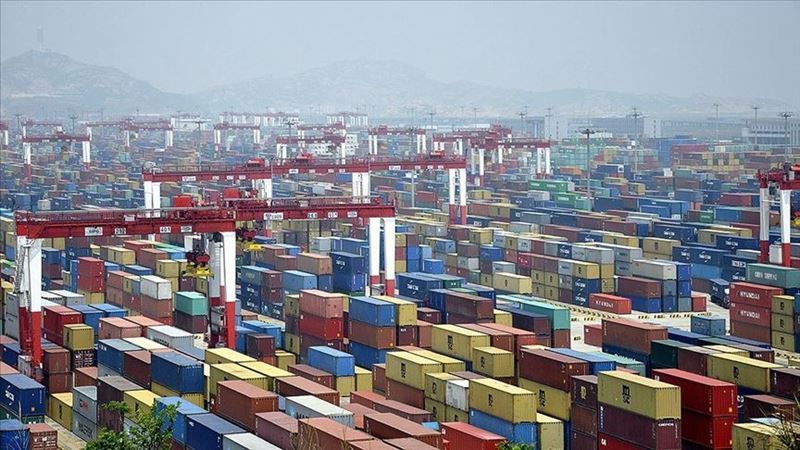While a negative trend was observed in global markets due to geopolitical risks and concerns that central banks will take more hawkish steps in monetary policies than expected, it is stated that volatility may increase with the intense data agenda and company balance sheets to be announced this week.
Despite the positive picture of the company balance sheets announced last week, especially in the USA, the tension continued within the scope of the Russia-Ukraine war and the hawkish statements from the US Central Bank (Fed) officials caused a decrease in the risk appetite.
st. Louis Fed President James Bullard stated that the 75 basis point rate hike has been done before and this is not the end of the world. Fed Chairman Jerome Powell and other bank officials, on the other hand, were on the hawkish side with their statements, although they did not clearly confirm Bullard's "75 basis point increase" statement.
After the announcements, pricing began in the bond markets that the bank would increase interest rates by 50 basis points in May, July and September meetings, and by 75 basis points in June.
With these developments, the US 10-year bond yield was stabilized at 2.88 percent at the beginning of the new week, after exceeding 3 percent on Friday and testing the peak of 3 years. The dollar index, on the other hand, exceeded the level of 101.
Despite the increasing geopolitical risks in commodity prices, it is observed that the selling pressure continues with the continuation of the strengthening in the dollar index, while the barrel price of Brent oil fell below $ 103 after closing at $ 105.6 with a decrease of 4.7 percent last week. The ounce price of gold, which depreciated by 2.1 percent last week, started the new week with a decrease and stabilized at the level of $ 1,917.
Despite the fact that the manufacturing industry Purchasing Managers Index (PMI) in the New York Stock Exchange rose to the highest level in 7 months with 59.7 in April and positive company balance sheets, there was a sharp decline due to concerns about monetary policies. The Dow Jones index fell 2.82 percent, the worst performance since October 2020, while the S&P 500 index lost 2.77 percent and the Nasdaq index lost 2.55 percent. While the decrease in the indices on a weekly basis was based on an average of 3 percent, futures contracts started the new week with depreciation.
On the European side, while the deepening energy crisis after the Russia-Ukraine war and the inflationary pressures that continue to increase in this context remained at the center of the agenda, a faster-than-expected tightening in monetary policy from the European Central Bank (ECB) began to be voiced. ECB President Christine Lagarde said last week that the bank may raise interest rates before the end of the year, while asset purchases are likely to be completed by the end of the third quarter. It has started to be priced that the bank will increase by 50 basis points until September.
On the other hand, according to the second round of polls in France, President Emmanuel Macron was re-elected as president.
With these developments, losses deepened in European stock markets, led by the sharp decline in mining shares, and the DAX 30 index in Germany was 2.5 percent, the FTSE 100 index in the UK was 1.4 percent, the CAC 40 index in France was 2 percent and the MIB index in Italy. The 30 index fell 2.1 percent. Euro/dollar parity continued its decline with the strengthening of the dollar and stabilized at 1.08, while European index futures contracts started the new week with sellers.
The continuation of city quarantines within the scope of the new type of coronavirus (Kovid-19) epidemic in China throughout Asia continues to be the main factor that puts pressure on the stock markets. The decreasing risk appetite globally due to the hawkish monetary policies in the USA and Europe also has an impact on the regional stock markets. With these developments, the Nikeki 225 index in Japan is 1.8 percent, the Shanghai composite index in China is 3.5 percent and the Hang Seng index in Hong Kong is 3.3 percent.
Domestically, the BIST 100 index in Borsa Istanbul reached its highest level of 2,562.28 points last week, but on Friday, it lost its value by 3.30 percent and closed at 2,472.50 points due to the global sales pressure. The index lost 0.88 percent on a weekly basis. Dollar/TL is trading at 14,7640 at the opening of the interbank market today, after closing at 14.7427 with an increase of 0.2 percent on Friday.
Analysts said that developments regarding the Russia-Ukraine war and verbal guidance from central bank officials remain in the focus of investors.
Analysts stated that the balance sheets regarding technology in the USA, Europe and the banking sector in the country will be announced this week, and that stock-based activity may increase in this context, on the other hand, the Inflation Report meeting to be held by the Central Bank of the Republic of Turkey (CBRT), growth in the USA, European He also noted that inflation and the central bank's interest rate decision in Japan will be followed closely.
Analysts stated that the real sector confidence index and capacity utilization rate in the country, Ifo indices in Germany, Chicago National Activity Index in the USA and Dallas Fed Activity Index will be monitored on the data agenda today, technically, the BIST 100 index has reached the levels of 2.440 and 2.370. reported that he was in a position of support.
Here are the things to watch in the markets today:
10.00 Turkey, April real sector confidence index
10.00 Turkey, capacity utilization rate in April
11.00 Germany, April Ifo Business Confidence Index
15.30 US, March Chicago National Activity Index
17.30 US, April Dallas Fed Activity Index











Comments
No comment yet.